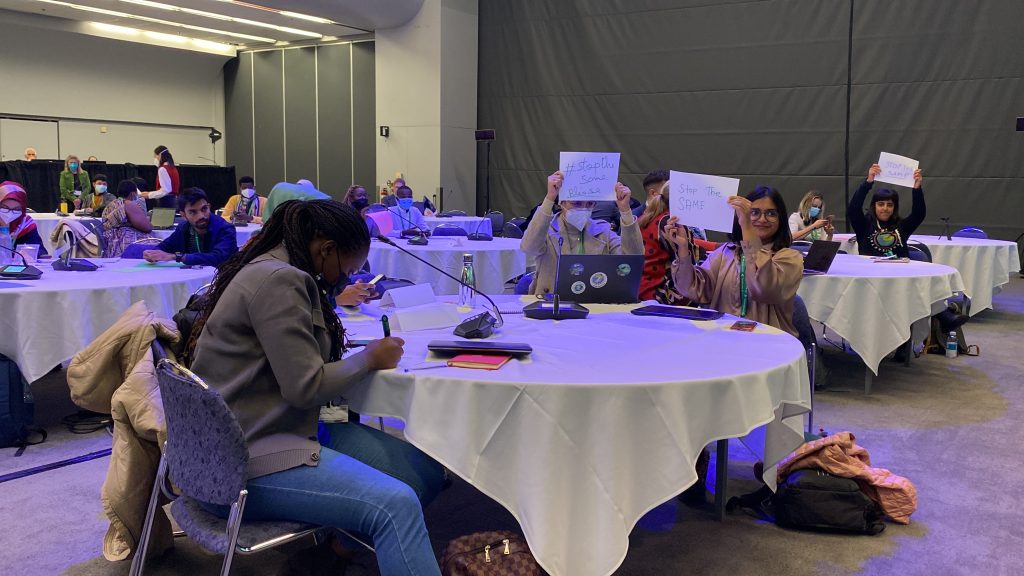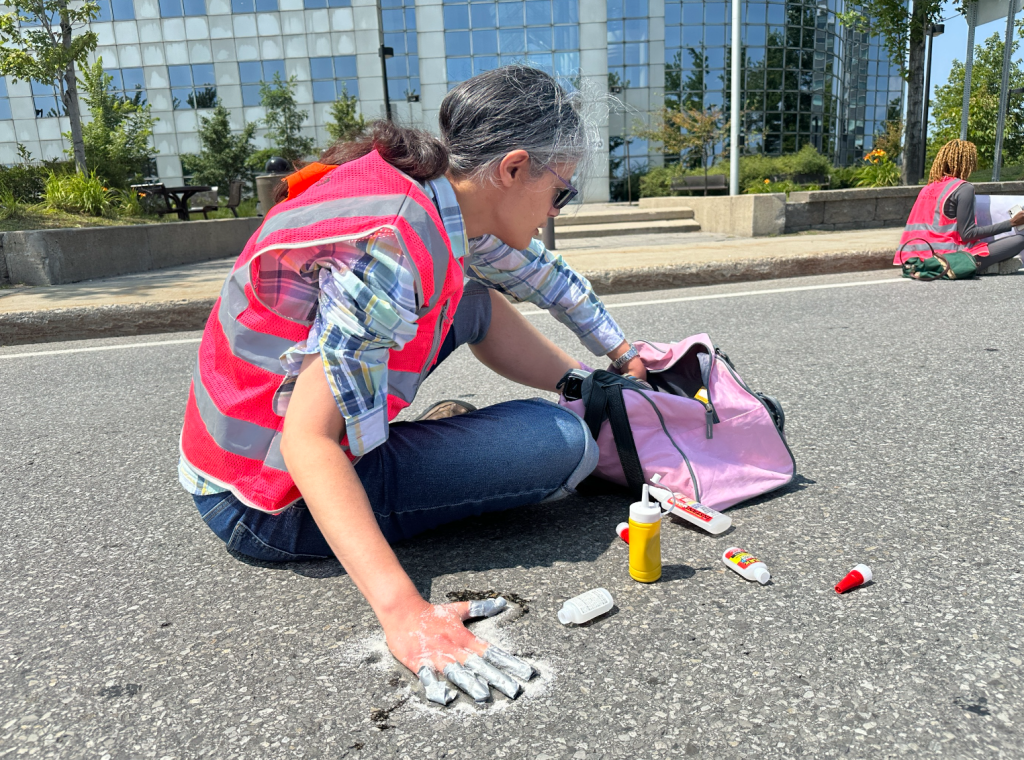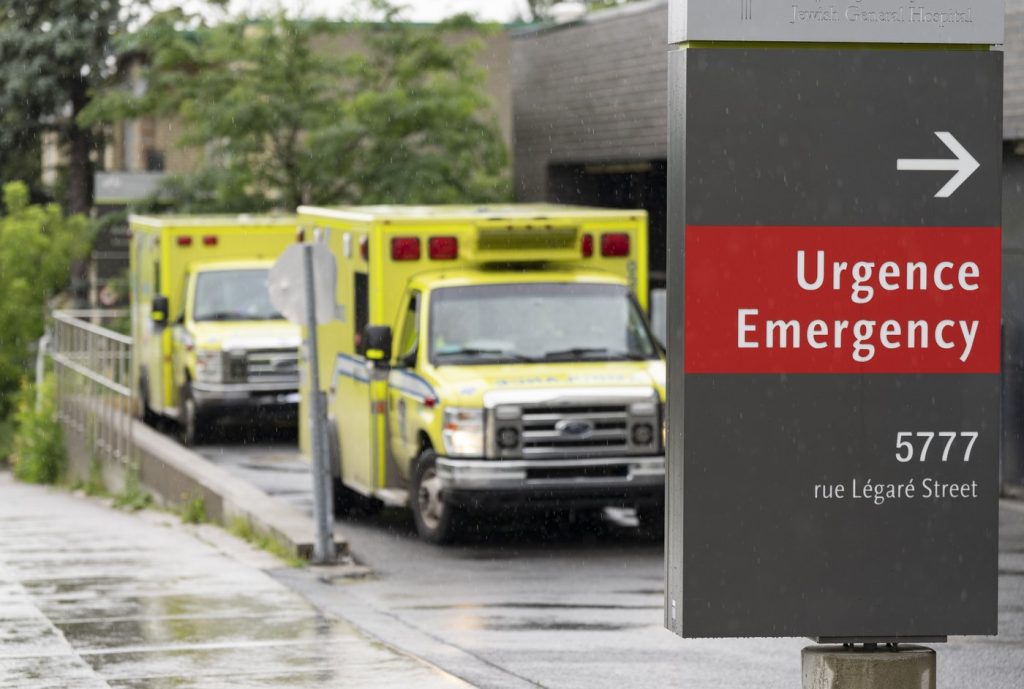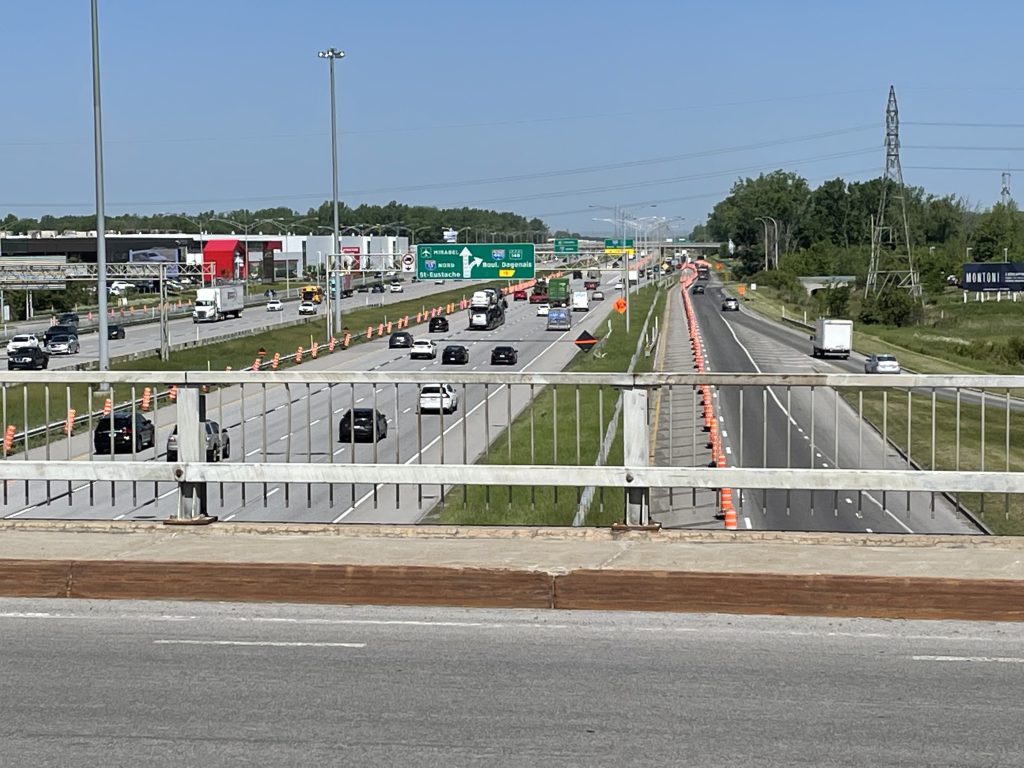Youth take center stage at COP15 biodiversity conference in Montreal
Posted December 8, 2022 3:11 pm.
Last Updated December 8, 2022 6:32 pm.
It was all about youth at COP15 on Thursday, the second day of the United Nations conference on biodiversity in Montreal.
The Global Youth Biodiversity Network was hosting ‘Youth Day’ to mobilize for climate action and represent youth on an international platform.
“Us being here, it is a sign of a meaningful engagement of young people,” said Jackem Otete from the Kenya chapter of the Global Youth Biodiversity Network.
RELATED: Hard talks on hard targets: real work begins at Montreal biodiversity conference
“Being at youth day, it’s a day to remind all the leaders why we as young people, we need to fully be recognized,” he added. “We need to be fully given space to participate in the discussions that are going on here and even beyond this conference.”
‘Youth Day’ included of activities, workshops, panels near the youth pavilion at the Palais des congrès.

(Credit: CityNews / Alyssia Rubertucci)
The slogan for the day was “Stop the Same,” which was directed at decision makers on biodiversity.
“Our call to action is to just to remind them that they need to stop doing the same things have been doing,” said Otete.
Many, like Abigail Kitma from the Philippines chapter of the Global Youth Biodiversity Network, say the status quo isn’t enough.
“What has brought us here, where we have a biodiversity crisis, is obviously not going to bring us forward,” she said. “So we really need transformative change and we really need to stop business as usual actions.”
#WATCH: “It is a sign of a meaningful engagement of young people,” says Jackem Otete, of Kenya’s Global Youth Biodiversity Network. Thursday is Youth Day at COP15 in Montreal, where young people are pushing for climate action.
READ: https://t.co/RKbqPANS26 pic.twitter.com/pkeWOwloVG
— Alyssia (@rubertuccinews) December 8, 2022
Angel Brant of the Indigenous Climate Action’s youth delegation says youth have continued to show that their voices are important.
“A lot of people are making decisions and there’s this phrase, ‘No decisions about us without us,'” she said. “So when we’re having negotiations, we want to make sure that the future, our future is included in those negotiations.”
Their priorities surround: intergenerational equity, full participation of youth, transformative education, and rights-based approaches for people and nature.
For Brant, the approach should also be Indigenous-led.
READ MORE: Canada commits $800M to support Indigenous-led conservation projects
“Indigenous youth live biodiversity,” she said. “Their homelands are based around biodiversity, they have traditional knowledge, they have lived experiences, they are connected to Mother Earth.”
Youth are taking part in the lobbying involved in negotiating a new biodiversity framework.
“I really hope that when we go back home after this COP, our governments will really open up spaces for youth to participate in the decision-making,” said Kitma.






